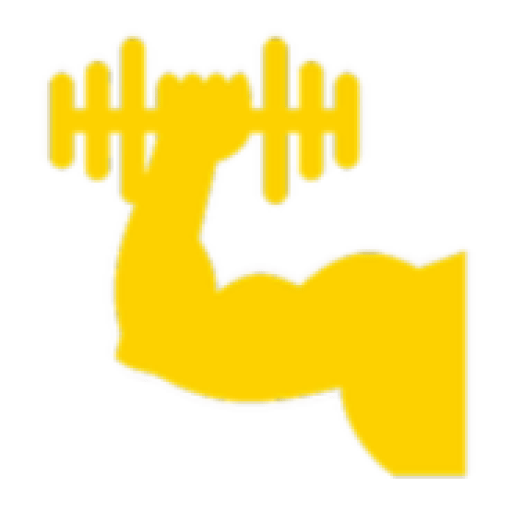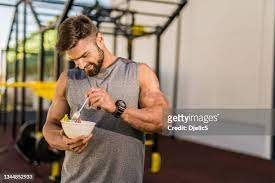Bodybuilding is not just about lifting heavy weights; it’s an intricate dance between nutrition, exercise, and recovery. Your dietary choices can be the difference between average results and truly impressive gains. The role of a proper diet in bodybuilding is often underestimated. This article provides you with a science-backed and expert-led guide on a bodybuilding diet, ensuring you maximize your muscle growth potential.
The Pillars of a Bodybuilding Diet
Quality Proteins:
Proteins are the building blocks of muscles. Include lean meats, fish, eggs, dairy products, and plant-based proteins like lentils and chickpeas. Aim for 1.2 to 2.2 grams of protein per kilogram of body weight.
Essential Fats:
Fats are vital for hormone production, especially testosterone, which is crucial for muscle growth. Opt for sources like avocados, nuts, seeds, and olive oil.
Energizing Carbohydrates:
Carbohydrates fuel your workouts and aid in muscle recovery. Prioritize complex carbs like quinoa, brown rice, and whole grain pasta.
Beyond Macronutrients: The Role of Micronutrients
Often overshadowed by the big three – proteins, fats, and carbohydrates – micronutrients play a pivotal role in muscle health and overall well-being.
Vitamins: The Essential Helpers
- Vitamin D: Known as the ‘sunshine vitamin,’ it’s crucial for bone health, immunity, and muscle function. Sun exposure and fortified foods are key sources.
- B Vitamins: These play a role in energy production. Whole grains, legumes, and lean meats are excellent sources.
- Vitamin C: Beyond its immunity-boosting benefits, it aids in collagen production, crucial for joint health. Citrus fruits and bell peppers are your go-to.
Minerals: More than Just Electrolytes
Magnesium:
This mineral is involved in over 300 enzymatic reactions, including muscle contraction. Nuts, seeds, and green leafy vegetables are rich sources.
Zinc:
Vital for protein synthesis and immune function. It’s abundant in meats, dairy, and legumes.
Iron:
Especially important for those who engage in high-intensity workouts, as it helps with oxygen transport. Red meat, spinach, and fortified cereals can help meet your needs.
The Power of Antioxidants in Recovery
Post-workout recovery is crucial in bodybuilding. Antioxidants combat oxidative stress that occurs during intense workouts.
Berries:
Blueberries, strawberries, and raspberries are packed with antioxidants. Add them to your post-workout shake or oatmeal.
Green Tea:
Beyond its fat-burning properties, it’s a potent antioxidant source. Consider swapping one of your daily coffees for a cup of green tea.
Turmeric:
Curcumin, the active compound in turmeric, has powerful anti-inflammatory and antioxidant properties. Add a pinch to your post-workout smoothie.
Timing Matters
Pre-workout Nutrition:
Eat a balanced meal 1-2 hours before your workout. This should include complex carbohydrates and protein to give you sustained energy.
Post-workout Nutrition:
This is the golden hour. After a workout, your muscles are like sponges, ready to absorb nutrients. Opt for a blend of quick-absorbing carbs and proteins.
Staying Hydrated
Water isn’t just for quenching thirst. It plays an instrumental role in transporting nutrients and aiding muscle recovery. Ensure you’re drinking at least 8 cups daily, more if you’re actively training.
Supplements: Yay or Nay?
Supplements can be an adjunct to a well-balanced diet. Protein powders, BCAAs, creatine, and omega-3 fatty acids have research backing their efficacy in aiding muscle growth and recovery. However, always consult with a nutrition expert before starting any supplement regimen.
FAQs on Bodybuilding Diet
-
How often should I eat?
- Eating every 3-4 hours can be beneficial. This ensures a steady stream of nutrients for muscle repair and growth.
-
Are cheat meals allowed?
- Yes, occasionally. It’s essential to enjoy the journey. However, moderation is key.
-
Do I need to count calories?
- While not always necessary, tracking your intake can provide insights into your nutritional habits, helping you make informed adjustments.
-
Vegetarian or vegan and bodybuilding, is it possible?
- Absolutely. With careful planning, plant-based diets can be just as effective.
Conclusion
Building diet is not solely the result of countless hours at the gym. It’s a combination of sweat, discipline, and, importantly, the right nutrition. Prioritize a balanced diet, focus on nutrient timing, stay hydrated, and consider supplements judiciously. The journey to a chiseled physique is as much about what you eat as how you train.

